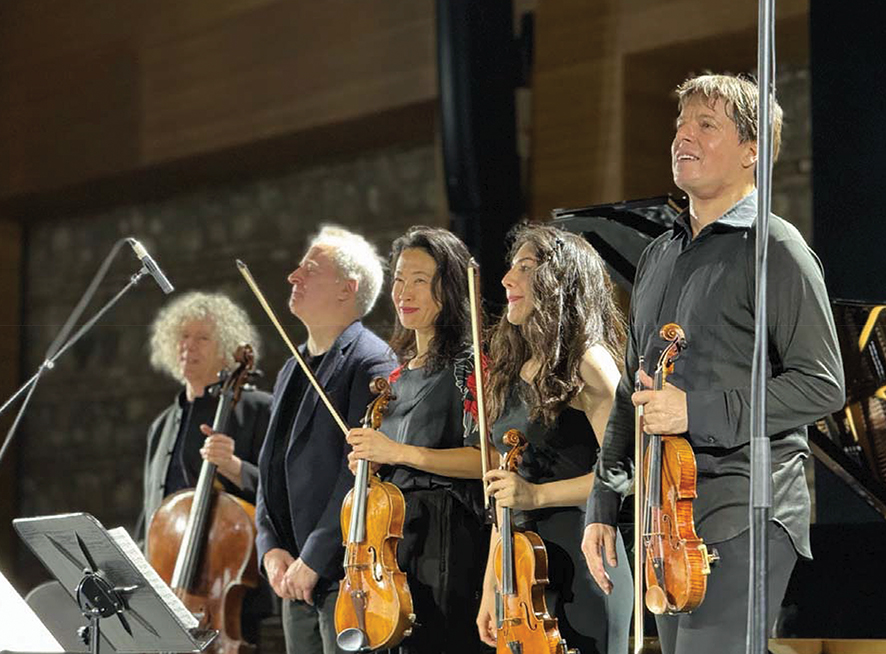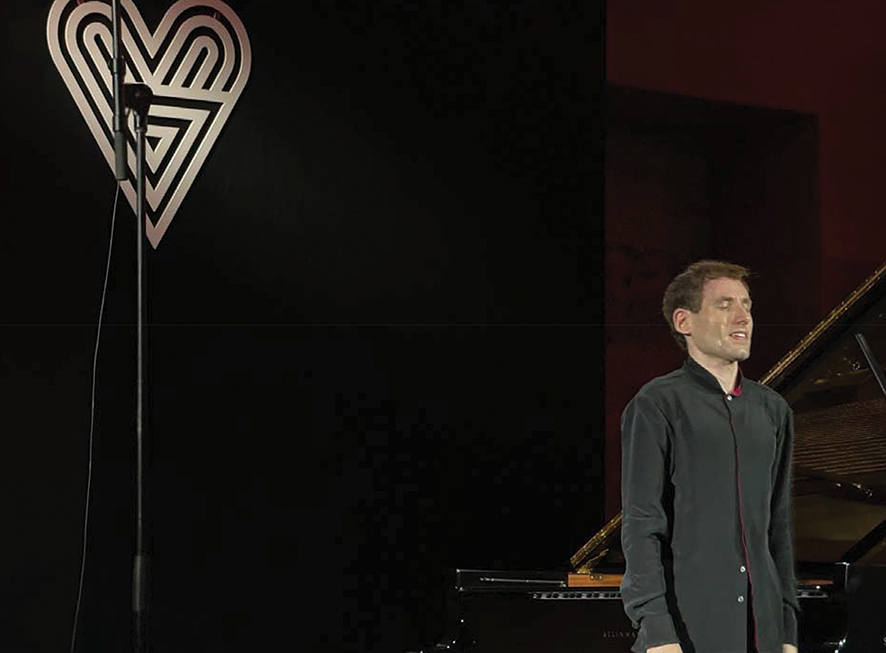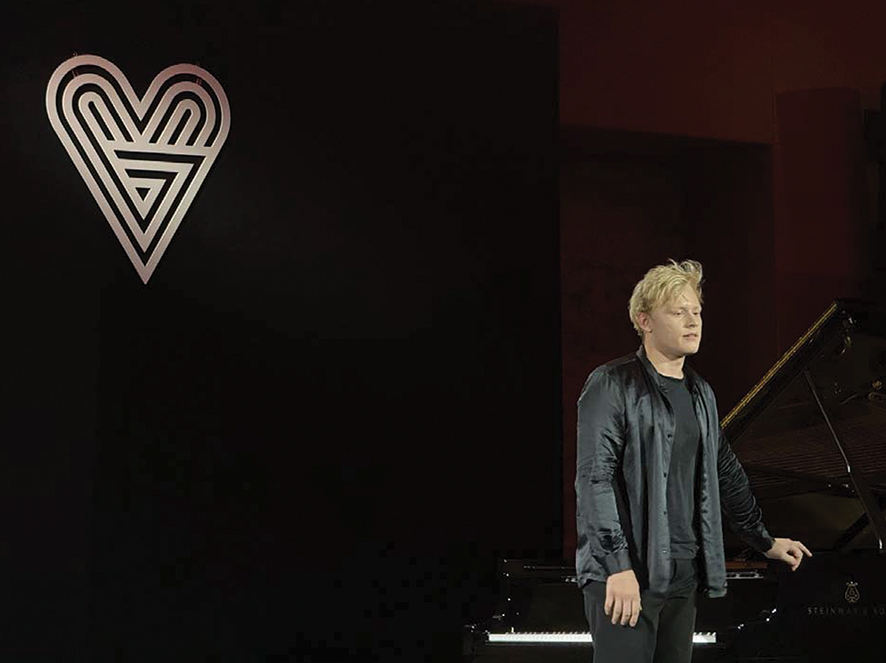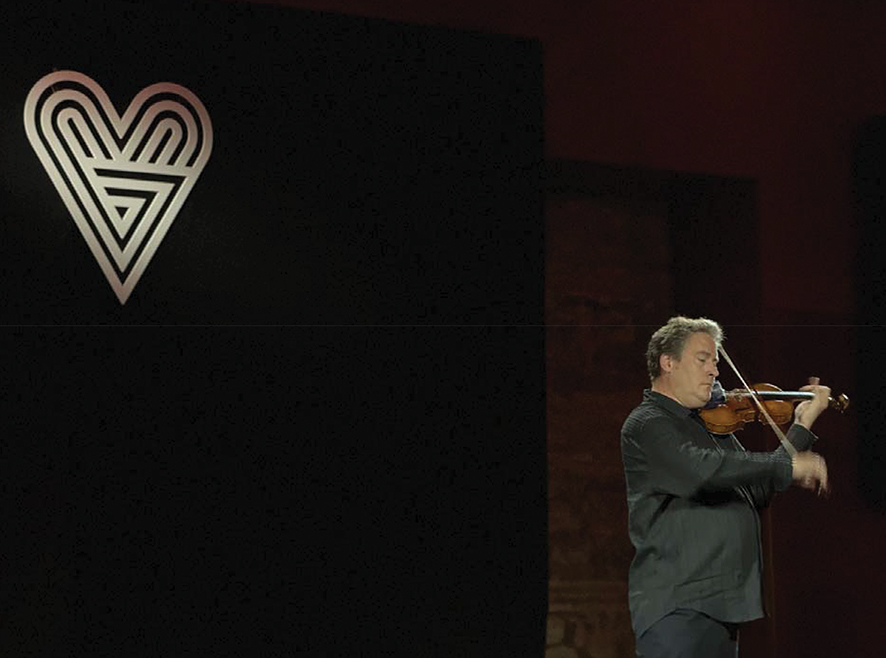The 6th edition of the Tsinandali Festival in 2024 proved once again that this Georgian cultural landmark has become an essential pilgrimage for classical music aficionados. Set against the breathtaking backdrop of the Caucasus, this year’s chamber music concerts brought together a stunning array of world-class musicians for performances that bridged the intricacies of Baroque grace, the passionate depths of Romanticism, and the dazzling virtuosity of the 19th and 20th centuries. Each concert was a testament to the profound interplay between performer and composer, transcending time to create unforgettable musical experiences.
Quentin and Moreau: The Romantic Masterclass
Julien Quentin (piano) and Edgar Moreau (cello) crafted an evening of sheer Romantic brilliance, opening with Felix Mendelssohn’s Sonata for Cello and Piano No. 2 in D Major, Op. 58. The sonata is a masterpiece that often remains overshadowed by Mendelssohn’s larger works, but in the hands of Quentin and Moreau, it became a revelation. Moreau’s silken cello lines soared through the expansive melodic structures, while Quentin’s piano playing exhibited a rare combination of power and finesse. Together, they brought out the dance-like lilt of the Allegretto scherzando and the emotional depth of the Adagio.
Their next offering, Johannes Brahms’ Sonata for Cello and Piano No. 2 in F Major, Op. 99, highlighted their artistic synergy even further. Brahms demands both introspection and ferocity, and here, Moreau’s cello echoed the brooding, stormy skies of Brahms’ late Romanticism, while Quentin’s playing was a marvel of dynamic shading. The Allegro vivace was performed with fiery energy, culminating in a breathtaking performance of the final Allegro molto.
To finish their set, the pair performed Niccolò Paganini’s Variations on One String, on a Theme by Rossini, a showstopper that allowed Moreau to demonstrate his astounding technical command. The whimsical nature of the piece was not lost in his virtuosic brilliance; instead, it became a playful yet thrilling conclusion to a concert that spanned the emotional and technical spectrum.

Bell, Denk, Isserlis & Co.: Chamber Music at Its Pinnacle
One of the festival’s most anticipated moments was the collaboration between Joshua Bell (violin), Jeremy Denk (piano), Steven Isserlis (cello), Irène Duval (violin), Blythe Teh Engstroem (viola), and Pierre Génisson (clarinet). Together, they performed two monumental works: Johannes Brahms’ Clarinet Trio in A Minor, Op. 114, and Robert Schumann’s Piano Quintet in E-flat Major, Op. 44.
The Clarinet Trio was a triumph of intimacy and complexity. Génisson’s clarinet was both dark and velvety, capturing Brahms’ melancholic undertones while Bell and Isserlis navigated the rich textures with a profound understanding of the trio’s interwoven dialogue. The ensemble’s unity was most apparent in the final Allegro, where the delicate balance between the three instruments achieved a sense of both resolution and wistfulness.
Their performance of Schumann’s Piano Quintet elevated the evening into an entirely different emotional realm. This quintessential Romantic chamber work, composed during Schumann’s most prolific period, was played with extraordinary vigor. Bell’s violin shone in the Scherzo, while Denk’s piano provided a vivid foundation that alternated between lyrical sensitivity and explosive energy. The hauntingly beautiful slow movement (In modo d’una marcia) was performed with such emotional clarity that it left the audience in a meditative silence before the exuberant, triumphant finale.

Boris Giltburg: The Piano as a Canvas of Imagination
Soloist Boris Giltburg delivered one of the festival’s most intense performances, showcasing his interpretation of two pillars of the Romantic piano repertoire: Robert Schumann’s Carnaval, Op. 9, and Franz Liszt’s Piano Sonata in B Minor, S.178.
Schumann’s Carnaval was a masterful portrayal of the composer’s dualities—the playful, whimsical “Florestan” and the introspective “Eusebius.” Giltburg shifted effortlessly between these contrasting personalities, capturing the fleeting nature of Schumann’s genius with a remarkable blend of sensitivity and technique. The rapid tempo changes and intricate character studies were illuminated by Giltburg’s nuanced touch, culminating in the exhilarating final march.
In Liszt’s Piano Sonata in B Minor, Giltburg reached the pinnacle of pianistic drama. The sonata’s vast scope, with its deep emotional range and technical fireworks, seemed tailor-made for Giltburg’s virtuosic brilliance. His interpretation was a synthesis of power and lyricism, where thunderous passages gave way to moments of intimate beauty, especially in the contrasting slow sections. By the time he reached the sonata’s monumental conclusion, the audience was left breathless, in awe of both the composition and the performer.

Alexander Malofeev: A Pianistic Virtuoso Across Time
Alexander Malofeev, another of the festival’s young prodigies, offered a stunning program that began with George Frideric Handel’s Suite in B-flat Major, HWV 434 and continued through works by Purcell, Muffat, Medtner, Rachmaninoff, and Chopin.
Malofeev’s interpretation of the Handel Suite was infused with an elegance that paid homage to the Baroque style, but it was his performance of the Romantic and 20th-century repertoire where he truly came alive. Medtner’s Sonata-Reminiscenza, Op. 38, No. 1 allowed Malofeev to showcase his profound emotional sensitivity, and his Rachmaninoff Morceaux de fantaisie was filled with a nostalgia that resonated deeply with the audience.
The highlight of the program was Chopin’s Andante spianato et grande polonaise brillante, Op. 22, where Malofeev balanced the bravura of Chopin’s writing with a clarity of touch that made the work’s intricate lines shimmer. His command over the instrument was nothing short of extraordinary, offering a performance that will surely linger in the memory of those fortunate enough to witness it.

Kristóf Baráti: The Sublime Art of Bach’s Solo Violin Partitas
In a performance that was nothing short of a spiritual journey, Kristóf Baráti tackled one of the most demanding solo violin undertakings: Johann Sebastian Bach’s complete Partitas for Solo Violin (BWV 1006, 1002, 1004).
Baráti’s playing was a masterclass in purity, with each partita showcasing his immaculate technique and profound understanding of Bach’s intricate counterpoint. Particularly in the famous Chaconne from Partita No. 2 in D Minor, Baráti’s interpretation soared. His phrasing was deeply considered, revealing the architectural brilliance of Bach’s construction, and his tone throughout was warm, yet incisive, ensuring that every note spoke with clarity and intention.
The spiritual depth of Bach’s music, especially in Baráti’s hands, reminded the audience why these partitas have remained central to the violin repertoire for centuries. His performance was not just a technical feat, but a meditation on the transcendent nature of music itself.
From Baroque Elegance to Romantic Fire: A Grand Celebration of Musical Virtuosity
The Tsinandali Festival 2024’s chamber concerts were a resounding success, highlighting not only the extraordinary talents of the performers but also the timeless power of chamber music itself. From the delicate interplay between piano and strings in Brahms and Schumann to the fiery solo performances of Giltburg, Malofeev, and Baráti, the festival offered an unmatched celebration of classical music’s finest traditions.
As the festival continues to grow in prominence, it remains a beacon for cultural exchange, where the most profound musical conversations can be had between artist, audience, and the timeless compositions they bring to life. This year’s chamber concerts, rich with history, emotion, and virtuosity, will undoubtedly be remembered as one of the highlights of the global classical music calendar.
By Ivan Nechaev














